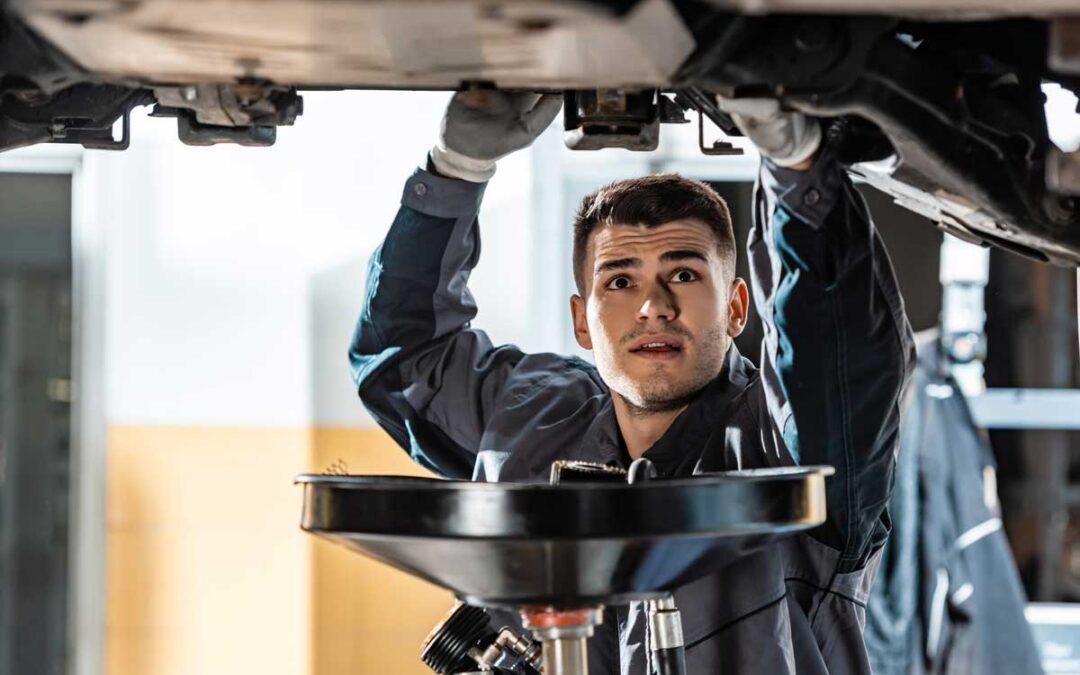A regular oil change lubricates your engine in the short term and provides long-term protection by actually cleaning your engine’s parts as it goes about its business of taking you from point A to point B. A good synthetic oil will actually hold accumulated junk so that it doesn’t damage your engine while it lubricates your engine’s parts.
Save Big Time at the Pump
Some of the tangible benefits that you can expect from regular oil changes are improved gas mileage and a much longer lifespan to your engine overall. You’ll be saving at the pump, in other words, and suffer fewer hassles and inconvenient breakdowns by getting an oil change using synthetic oil blends formulated for your specific vehicle.
While regular oil changes might be the most affordable and efficient way to keep your engine in tip-top shape, you might actually need to get regular maintenance at an auto shop like All Around Auto Repair to stay within warranty.
A lot of extended manufacturer warranties these days include regular oil changes as a precondition for maintaining coverage. Whether or not you technically need regular oil changes, they’re a great thing to do for your engine and will, all things being equal, save you a lot of money in the long haul.
Think Twice About Skipping
Skipping to work is fine, but skipping oil changes probably isn’t. Why’s that? The oil in your engine will naturally disintegrate over time due to the high temperatures that it takes to run an engine – i.e., thermal breakdown. When that happens, your engine parts aren’t getting the lubrication they need.
On a smaller and simpler scale, you could compare an engine that’s experienced thermal breakdown with something like a bike chain that doesn’t enough grease. What happens in both cases is that the metal parts will wear down prematurely because they’re not being lubricated properly.
Today’s synthetic oil blends are doing more than lubricating your vehicle’s engine, though. What’s going on is that these oil blends are actually accumulating and essentially neutralizing gunk that can otherwise build up and gradually damage your engine over time.
Your engine oil can collect a lot of engine gunk as time goes on, but at some point you need new oil because the old oil has collected and neutralized as much of the bad stuff as it can. As time wears on, gunk and particulate matter will settle and cause long-term engine damage.
Old oil that isn’t really doing its job anymore can cause sludge buildup in the engine like a traffic jam that blocks a number of parts from moving properly. Because of the logjam, oil won’t be able to efficiently get to various valvetrain components like your engine’s crank- and camshafts.
What About If You’ve Already Skipped?
If you know or just suspect that you’ve missed an oil change, then what should you do? First, don’t panic. You need to head in to All Around Auto Repair and find out if any damage has been done to your engine, if your parts are properly oiled, and if there’s any sludge buildup.
The ASA-certified mechanics at All Around Auto Repair can answer all three questions for you by running a series of tests, such as vacuum and leak-down tests. Both of these tests are designed to give a gauge on engine performance.
A vacuum test should technically clue mechanics in to the differences between the ambient atmospheric pressure and the vacuum inside your intake manifold.
Basically, a vacuum test can tell mechanics whether there’s something like an intake gasket issue, poor timing, or low compression – vacuum tests are a good indication of your engine’s overall mechanic performance.
A leak-down test is somewhat more complicated to do as it involves putting compressed air into the cylinder and gauging the rate at which that compressed air leaks out.
Regular oil changes should result in your acing both tests because your engine would literally be working better mechanically and getting properly lubricated the whole time. Schedule an oil change appointment with All Around Auto Repair online or by calling (707) 837 – 0646 today.


